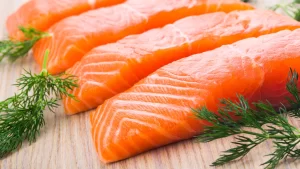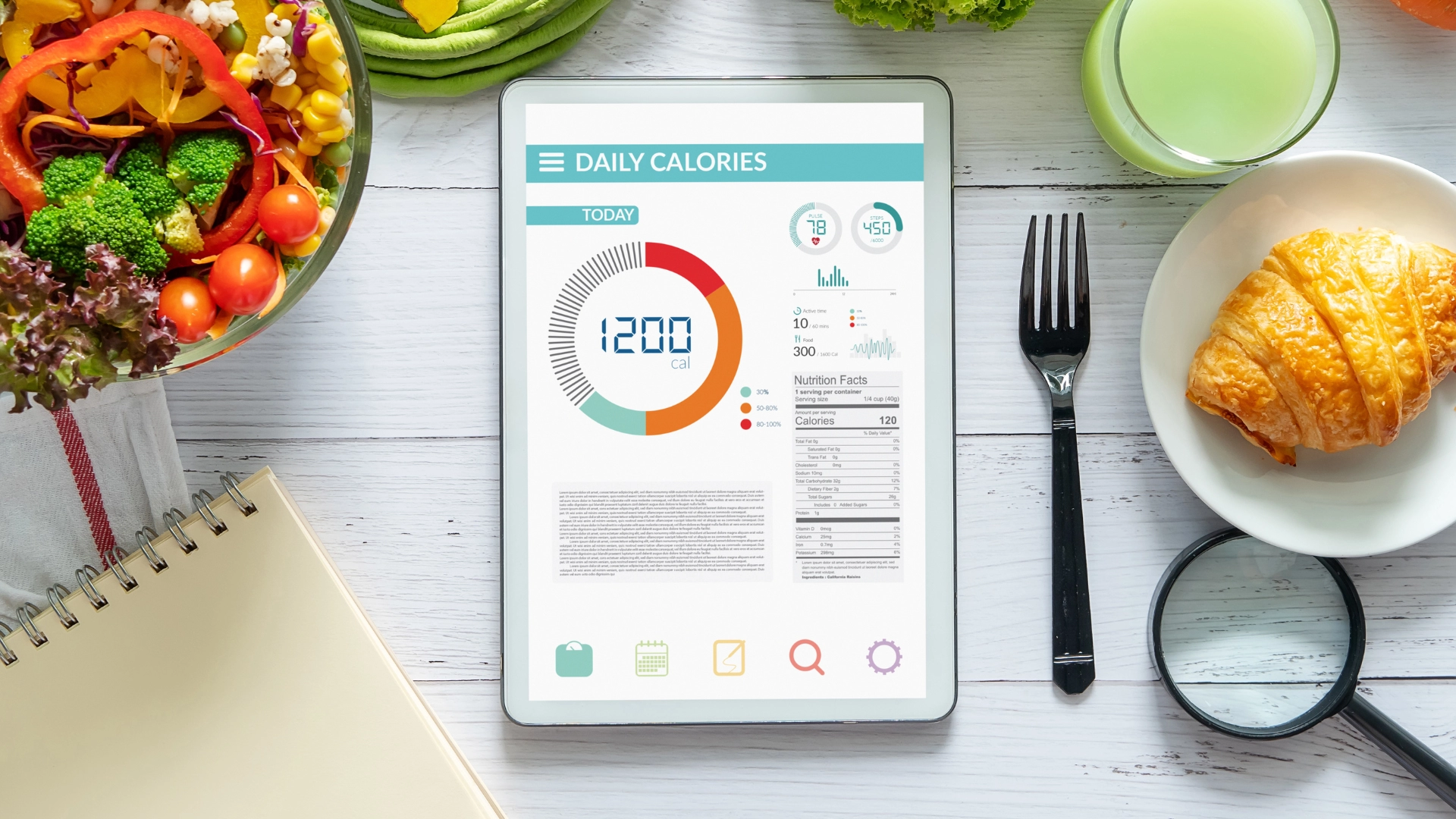Gaining weight can be just as challenging as losing it for some individuals. Whether you’re looking to build muscle, recover from an illness, or simply increase your body mass, consuming high-calorie foods is essential. However, it’s crucial to focus on nutrient-dense options that provide not only calories but also valuable vitamins and minerals. In this comprehensive guide, we’ll explore a variety of high-calorie foods that can help you achieve your weight gain goals in a healthy manner.
Understanding Caloric Needs for Weight Gain
Before diving into specific food options, it’s important to understand the basic principle of weight gain: consuming more calories than you burn. To gain weight, you need to create a caloric surplus. This means eating more calories than your body uses for daily activities and basic functions.
The number of extra calories needed varies from person to person, depending on factors such as age, gender, current weight, activity level, and metabolism. Generally, adding 300-500 calories per day to your current intake can lead to a steady weight gain of about 0.5-1 pound (0.2-0.45 kg) per week.
Nutrient-Dense, High-Calorie Foods for Weight Gain
Here’s a list of 20 high-calorie, nutritious foods that can help you gain weight:
1. Whole Milk

Whole milk is a complete nutritional package, offering a balance of fats, proteins, and carbohydrates. It’s an excellent source of calcium and vitamin D, crucial for bone health.
The fat content in whole milk helps in the absorption of fat-soluble vitamins (A, D, E, and K) and provides a creamy texture that makes it satisfying to drink on its own or use in recipes.
Nutrition facts (per cup):
– Calories: 150
– Fat: 8g
– Carbohydrates: 12g
– Protein: 8g
2. Nuts and Nut Butters
Nuts are nature’s own nutrient-dense snack packs. They offer a perfect blend of healthy fats, protein, and fiber. Almonds provide vitamin E and magnesium, walnuts are rich in omega-3 fatty acids, and peanuts offer a good dose of biotin.
Nut butters, made by grinding nuts into a paste, retain these nutrients and are easily incorporated into various dishes or enjoyed on their own.
Nutrition facts (per 1 oz mixed nuts):
– Calories: 170
– Fat: 15g
– Carbohydrates: 6g
– Fiber: 3g
– Protein: 5g
3. Rice
Rice is a staple food in many cultures and an excellent source of carbohydrates for weight gain. It’s versatile, easy to digest, and can be paired with a variety of proteins and vegetables. One cup of cooked white rice provides about 200 calories, while brown rice offers additional fiber and nutrients.
Nutrition facts (per 1 cup cooked white rice):
– Calories: 200
– Fat: 0.4g
– Carbohydrates: 45g
– Fiber: 0.6g
– Protein: 4g
4. Olive Oil
A cornerstone of the Mediterranean diet, olive oil is more than just a cooking medium. It’s rich in monounsaturated fats and antioxidants like vitamin E and polyphenols.
Extra virgin olive oil, in particular, retains more of these beneficial compounds due to minimal processing. Its versatility allows it to be used in cooking, as a salad dressing, or drizzled over finished dishes for a calorie and flavor boost.
Nutrition facts (per tablespoon):
– Calories: 119
– Fat: 14g
– Carbohydrates: 0g
– Protein: 0g
5. Avocados
Creamy and versatile, avocados are a nutrient powerhouse. They’re packed with heart-healthy monounsaturated fats, which contribute to their high calorie content.
Avocados are also rich in fiber, promoting digestive health and providing a feeling of fullness. Their smooth texture makes them perfect for spreading on toast, adding to smoothies, or using as a base for dips like guacamole.
Nutrition facts (per medium avocado):
– Calories: 320
– Fat: 29g
– Carbohydrates: 17g
– Fiber: 13g
– Protein: 4g
6. Greek Yogurt

Greek yogurt stands out for its thick, creamy texture and high protein content. It’s made by straining regular yogurt to remove excess whey, resulting in a more concentrated product. This process increases the protein content and creates a tangy flavor.
Greek yogurt is also rich in probiotics, supporting gut health, and provides calcium for strong bones and teeth.
Nutrition facts (per 7 oz):
– Calories: 190
– Fat: 10g
– Carbohydrates: 7g
– Protein: 20g
7. Dried Fruits
Dried fruits are fresh fruits with most of the water content removed, concentrating their natural sugars and nutrients. This process makes them calorie-dense and gives them a longer shelf life.
Raisins are high in iron, dates are rich in potassium, and dried apricots provide beta-carotene. Their chewy texture and intense sweetness make them a great snack or addition to cereals and baked goods.
Nutrition facts (per 1/4 cup raisins):
– Calories: 120
– Fat: 0g
– Carbohydrates: 32g
– Fiber: 2g
– Protein: 1g
8. Salmon

Salmon is renowned for its high content of omega-3 fatty acids, particularly EPA and DHA, which are crucial for brain and heart health. It’s also an excellent source of high-quality protein, vitamin D, and selenium.
The pink color of salmon comes from astaxanthin, a powerful antioxidant. Whether grilled, baked, or smoked, salmon provides a delicious way to increase calorie and nutrient intake.
Nutrition facts (per 3 oz):
– Calories: 175
– Fat: 11g
– Carbohydrates: 0g
– Protein: 19g
9. Sweet Potatoes
Sweet potatoes are not only delicious but also nutritionally dense. They’re rich in complex carbohydrates, providing sustained energy. Their orange color indicates high levels of beta-carotene, which the body converts to vitamin A.
Sweet potatoes also contain vitamin C, potassium, and fiber. Their natural sweetness makes them versatile for both savory and sweet dishes.
Nutrition facts (per medium sweet potato):
– Calories: 100
– Fat: 0g
– Carbohydrates: 23g
– Fiber: 4g
– Protein: 2g
10. Quinoa
Often referred to as a “superfood,” quinoa is actually a seed that’s consumed as a grain. It’s one of the few plant foods that contain all nine essential amino acids, making it a complete protein.
Quinoa is also high in fiber, iron, and magnesium. Its slightly nutty flavor and fluffy texture make it a great base for salads, sides, or as a protein-rich alternative to rice.
Nutrition facts (per cup cooked):
– Calories: 220
– Fat: 3.5g
– Carbohydrates: 39g
– Fiber: 5g
– Protein: 8g
11. Dark Chocolate
Dark chocolate, particularly varieties with 70% cocoa content or higher, is rich in antioxidants called flavonoids. These compounds may help reduce inflammation and improve heart health.
Dark chocolate also contains iron, magnesium, and a small amount of caffeine. Its intense flavor means a little goes a long way in satisfying cravings while providing nutritional benefits.
Nutrition facts (per 1 oz):
– Calories: 170
– Fat: 12g
– Carbohydrates: 13g
– Fiber: 3g
– Protein: 2g
12. Cheese

Full-fat cheeses are calorie-dense due to their high fat content, but they also provide significant amounts of protein and calcium. Different varieties offer unique nutritional profiles – for example, Swiss cheese is high in phosphorus, while goat cheese is easier to digest for some people. Cheese can add flavor and calories to various dishes or be enjoyed on its own as a snack.
Nutrition facts (per 1 oz):
– Calories: 115
– Fat: 9g
– Carbohydrates: 1g
– Protein: 7g
13. Lean Red Meat
Lean cuts of red meat, such as sirloin or tenderloin, are excellent sources of high-quality protein and iron. The iron in red meat is in the heme form, which is more easily absorbed by the body compared to plant-based iron sources.
Red meat also provides vitamin B12, zinc, and selenium. When consumed in moderation, it can be part of a balanced diet and support muscle growth and maintenance.
Nutrition facts (per 3 oz):
– Calories: 180
– Fat: 10g
– Carbohydrates: 0g
– Protein: 22g
14. Granola
Granola is a mixture typically made from rolled oats, nuts, and dried fruits, often baked with honey or other sweeteners. This combination makes it calorie-dense and nutrient-rich. The oats provide fiber and complex carbohydrates, nuts add healthy fats and protein, and dried fruits contribute natural sugars and various vitamins. Granola can be eaten as a cereal, snack, or topping for yogurt or smoothie bowls.
Nutrition facts (per 1/2 cup):
– Calories: 250 (average)
– Fat: 13g
– Carbohydrates: 30g
– Fiber: 4g
– Protein: 6g
15. Bananas
Bananas are nature’s convenient, nutrient-rich snack. They’re high in carbohydrates, providing quick energy, and also contain a good amount of fiber.
Bananas are famous for their potassium content, which is essential for heart health and proper muscle function. They also provide vitamin B6 and vitamin C. Their natural sweetness and creamy texture make them perfect for eating fresh or adding to smoothies and baked goods.
Nutrition facts (per medium banana):
– Calories: 105
– Fat: 0.4g
– Carbohydrates: 27g
– Fiber: 3g
– Protein: 1g
16. Whole Grain Bread
Whole grain bread is made using the entire grain kernel, including the bran, germ, and endosperm. This means it retains more nutrients compared to refined white bread.
It’s rich in complex carbohydrates, providing sustained energy, and high in fiber, which aids digestion and promotes feelings of fullness.
Whole grain bread also offers B vitamins, iron, and various minerals. Its hearty texture and nutty flavor make it a satisfying base for sandwiches or toast.
Nutrition facts (per 2 slices):
– Calories: 200
– Fat: 3g
– Carbohydrates: 36g
– Fiber: 6g
– Protein: 8g
Incorporating High-Calorie Foods into Your Diet
While knowing which foods are high in calories is important, it’s equally crucial to understand how to incorporate them into your diet effectively. Here are some tips:
- Increase meal frequency: Instead of three large meals, try eating 5-6 smaller meals throughout the day.
- Add calorie-dense toppings: Use olive oil, nuts, or dried fruits as toppings for salads, yogurt, or oatmeal.
- Drink your calories: Smoothies and protein shakes can be an easy way to increase calorie intake.
- Snack smartly: Keep high-calorie, nutrient-dense snacks like nuts or dried fruits handy.
- Enhance your meals: Add extra cheese to dishes, use whole milk in recipes, or drizzle olive oil over vegetables.
Conclusion
Gaining weight in a healthy manner requires a balanced approach that focuses on nutrient-dense, high-calorie foods. By incorporating the foods listed above into your diet and following the tips provided, you can work towards your weight gain goals while maintaining overall health.
Remember, everyone’s nutritional needs are different. It’s always best to consult with a healthcare professional or registered dietitian before making significant changes to your diet. They can help create a personalized plan that aligns with your specific health goals and dietary requirements.
With patience, consistency, and the right approach, you can achieve healthy weight gain and improve your overall well-being.





